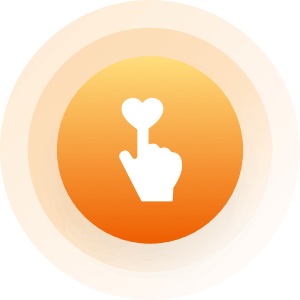| Topic: Berkeley University wants students DNA. | |
|---|---|
|
USA Today reports: http://blogs.discovermagazine.com/discoblog/2010/05/18/welcome-uc-berkeley-freshmen-now-hand-over-your-dna-samples/ This fall, incoming students at UC Berkeley will find a little something extra in their welcome packages: cotton swabs. The university is hoping that students will swab a few cells from the insides of their cheeks and pass them over to the university for DNA testing. The university says this exercise will get students excited about the prospects of personalized medicine, in which genetic testing could allow doctors to tailor their treatments to individual patients. The administration stresses that students won’t be tested for their risks of serious diseases, but instead for three fairly mundane genes. Geneticists will analyze each sample for three genes: metabolism of folate, tolerance of lactose and metabolism of alcohol, all relatively innocuous and perhaps useful in students’ daily lives. Students will be able to use that information to learn if they should eat more leafy green vegetables, steer clear of milk products or limit alcohol intake. Jasper Rine, the professor of Genetics and Development Biology who’s overseeing the project, swears he’s not trying to create a genetic database of thousands of undergraduates for any nefarious purpose. Really, what nefarious purpose could there possibly be? Anyway, the school can’t make lists of students who might be suitable for slave camp organ farms, because the data will all be anonymous. Each student’s genetics kit will come with two bar codes, one to be stuck on the sample and the other for the student to keep. The student can then retrieve his or her test results from a secure online database using the bar code. So there you go. |
|
|
|
|
|
I would think that students going to Berkeley would already know that it's better to eat green leafy vegetables and limit their alcohol intake. And if they're lactose-intolerant and they haven't figured that out yet, they will. Sounds more like somebody's trying to keep their grant funding. Or, it could be an evil, nefarious plot, too.
|
|
|
|
|
|
soon they will be analyzing the toilet flushes and correlating it with surveillance video outside the restrooms like they do at work!
|
|
|
|
|
|
The school 'can't' make lists or 'isn't' making lists NOW ... ? There's a difference. If data can be misused, it will be misused. Since the students can later use their bar codes to retrieve their data, there's an identifier somewhere in that code. What's to prevent the people holding the OTHER end of the bar code matchup link from just reading whose DNA is in the vial ... ? Sounds like someone's not being given complete information ... but they'll find that out over time. I'm inherently opposed to the creation of any and all DNA databases, especially since they'll be shared and accessible online. Your 'privacy' [sic] is only as secure as the morals of the person with access to your records.
|
|
|
|
|
|
USA Today reports: http://blogs.discovermagazine.com/discoblog/2010/05/18/welcome-uc-berkeley-freshmen-now-hand-over-your-dna-samples/ This fall, incoming students at UC Berkeley will find a little something extra in their welcome packages: cotton swabs. The university is hoping that students will swab a few cells from the insides of their cheeks and pass them over to the university for DNA testing. The university says this exercise will get students excited about the prospects of personalized medicine, in which genetic testing could allow doctors to tailor their treatments to individual patients. The administration stresses that students won’t be tested for their risks of serious diseases, but instead for three fairly mundane genes. Geneticists will analyze each sample for three genes: metabolism of folate, tolerance of lactose and metabolism of alcohol, all relatively innocuous and perhaps useful in students’ daily lives. Students will be able to use that information to learn if they should eat more leafy green vegetables, steer clear of milk products or limit alcohol intake. Jasper Rine, the professor of Genetics and Development Biology who’s overseeing the project, swears he’s not trying to create a genetic database of thousands of undergraduates for any nefarious purpose. Really, what nefarious purpose could there possibly be? Anyway, the school can’t make lists of students who might be suitable for slave camp organ farms, because the data will all be anonymous. Each student’s genetics kit will come with two bar codes, one to be stuck on the sample and the other for the student to keep. The student can then retrieve his or her test results from a secure online database using the bar code. So there you go. Where will those samples be stored? How many will have access to them? Nah, I would pass. But then, if they live in a dorm, samples can be taken without their knowledge. The way they build them college gals, if I was a hundert years younger, I'd be depositing as much DNA as I could.  
|
|
|
|
|










